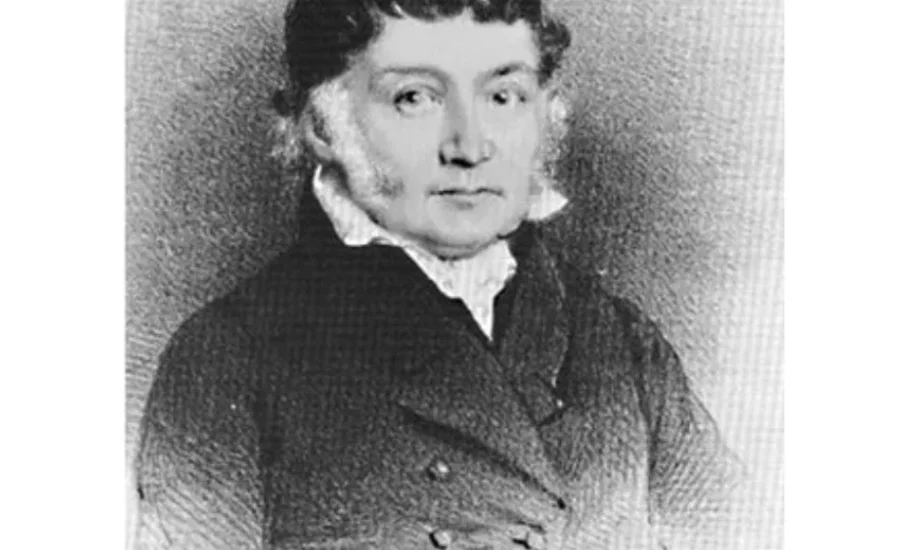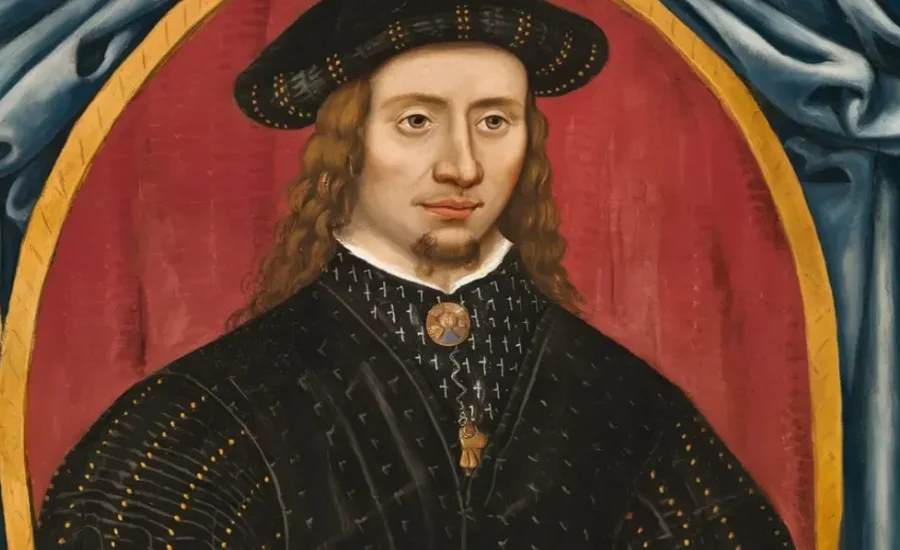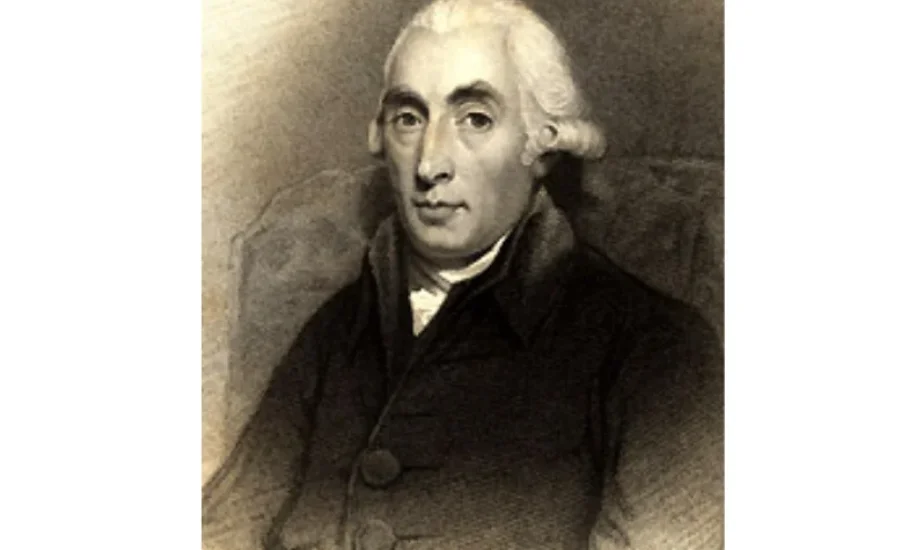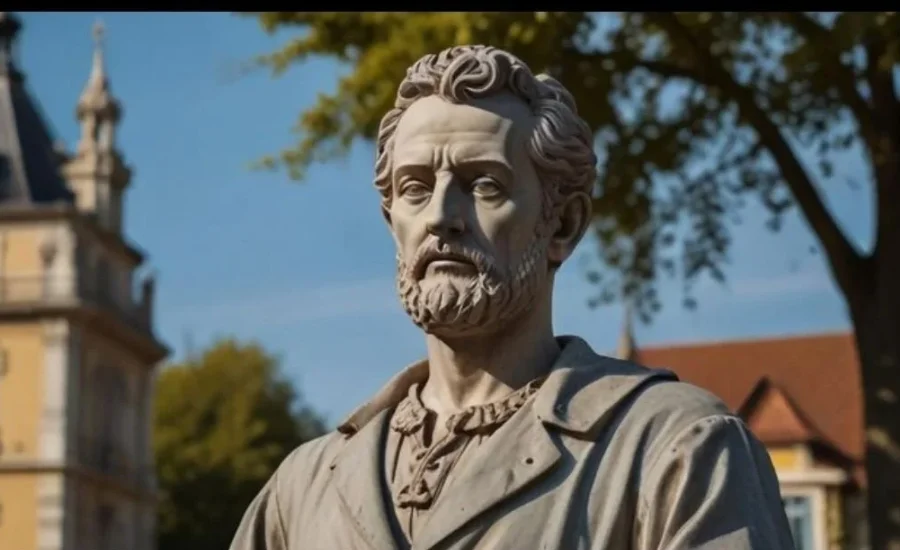Heinrich Servias Germany may not be a name that frequently surfaces in modern discussions, but his impact on the historical narrative of the 16th century is both profound and fascinating. His life and contributions provide a remarkable lens through which to view a period marked by substantial cultural and societal transformations. Rising from modest beginnings, Heinrich Servias became a significant figure during an era known for its innovative spirit and dynamic change.
As we explore the story of Heinrich Servias Germany, we begin to understand how his efforts and legacy subtly influenced the course of history. Though he may not have always been in the spotlight, his work exemplifies the broader advancements and shifts characteristic of the 16th century. Reflecting on Servias’s life allows us to appreciate the enduring effects of his contributions and the vibrant context of his time. His legacy serves as a testament to the era’s progress and provides invaluable insights into the transformative forces that defined this remarkable period.
Heinrich Servias Germany: Early Life and Education in the Industrial Era
Heinrich Servias Germany emerged during the late 19th century, a time characterized by profound industrial change. Growing up amidst rapid technological progress, he witnessed the rise of engineering and manufacturing, which profoundly influenced his career trajectory. His foundational education emphasized key concepts in mechanical engineering and business management, providing him with a robust framework for future endeavors.
To further his knowledge, Heinrich Servias attended a prominent German university, where he sharpened his skills and cultivated a deep interest in industrial technologies. This academic experience not only enriched his understanding but also prepared him to address the challenges presented by a fast-evolving industrial landscape. Through his education, Servias positioned himself to make significant contributions in an era defined by innovation and transformation.
Key Contributions of Heinrich Servias Germany to Cologne’s Transformation

Heinrich Servias Germany made remarkable strides in modernizing Cologne’s infrastructure, a pivotal contribution that reshaped the city’s landscape. With a clear vision, he sought to elevate Cologne into a modern European metropolis capable of rivaling its neighbors. Central to his ambitious plans was the development of a comprehensive railway system, which ultimately transformed Cologne into a vital transportation hub.
Among Servias’s most significant achievements is the construction of the Servias Bridge, an engineering feat that greatly enhanced connectivity between Cologne and surrounding industrial regions. This bridge not only facilitated the movement of goods and people but also stimulated further industrial growth throughout the Rhineland. As a testament to the advancements of its time, the Servias Bridge became a powerful symbol of Cologne’s modernization and set the stage for ongoing improvements in the city’s transportation network and infrastructure.
The Legacy of Heinrich Servias: A Family History Rooted in Transformation
Ancestral Heritage
Heinrich Servias Germany 1555, comes from a lineage that encapsulates the rich historical and cultural shifts of his time. His family history is a fascinating tapestry interwoven with strands of nobility and resilience, mirroring the broader changes that defined 16th-century Germany.
Servais’s ancestry reveals a legacy marked by a significant impact on the community. His parents were influential figures within their local sphere, establishing a foundation that would empower future generations to contribute meaningfully to society.
Exploring Family Connections
As we delve into the Servais family tree, we discover a host of notable ancestors, each with unique narratives that enrich the historical tapestry. Their individual experiences shaped not only their immediate environments but also had far-reaching implications for the broader German landscape.
The relationships among family members highlight enduring qualities and values that have been passed down through the years. This intricate family history emphasizes how these connections can profoundly influence one’s identity and sense of heritage, offering a deeper understanding of personal roots. The legacy of the Servais family continues to illuminate the lasting effects of family history on both personal and cultural identity.
The Servais Family: A Mirror of 16th-Century German Society
The genealogy of the Servais family is closely tied to the unfolding narrative of German history, particularly during the transformative 16th century. Heinrich Servais’s lineage emerged during a time marked by significant societal upheaval and cultural evolution.
In 1555, Germany was in the throes of religious upheaval, driven by the Reformation and the powerful ideas of Martin Luther. This period brought about shifts in governance and personal beliefs, affecting various aspects of life. Families like the Servais were not mere bystanders; they actively participated in this transformative era.
As trade routes expanded and urban centers flourished, families began to solidify their roles within their local economies. The Servais family adeptly navigated these changes, making substantial contributions to their communities while preserving traditions that would resonate through the generations.
Their story reflects the resilience and adaptability that characterize German history. Understanding the experiences of the Servais family offers valuable insights into how individual lineages have shaped and contributed to the national identity, revealing the interconnectedness of personal and societal narratives.
Heinrich Servias Germany: A Reflection of 16th-Century Change
While detailed records of Heinrich Servias Germany’s contributions to society and culture are scarce, his life offers essential insights into the broader context of 16th-century Germany. The challenges he faced were emblematic of the experiences shared by many individuals of his time, making his narrative a significant thread in the historical fabric of the era.
Although Servias may not have left a prominent material legacy like some of his more celebrated peers, his story underscores the importance of the often-overlooked contributions made by countless individuals to the course of history. His life illustrates the value of those who, despite their limited recognition, played vital roles in the events and transformations of their time.
Shaping the Renaissance: Innovation and Intellectual Growth

Heinrich Servias Germany, born in 1555, was immersed in a rich cultural and intellectual environment that significantly shaped his development. Growing up during a pivotal period marked by the transition from medieval traditions to the emerging modernity spurred by the Reformation, Servias’s early life reflected the profound transformations occurring around him.
From a young age, Servias exhibited a fervent passion for knowledge, eagerly transcending traditional educational boundaries. His diverse academic pursuits equipped him with a wide array of skills and perspectives, laying a solid foundation for his future contributions. These formative experiences played a critical role in enabling him to make a lasting impact on the dynamic intellectual landscape of 16th-century Germany.
Early Ventures in Innovation
Heinrich Servias Germany embarked on his professional journey with a series of ambitious projects that laid the groundwork for his future success. His initial entry into the industrial sector was characterized by a strong commitment to innovation and a pursuit of excellence. Focused on enhancing manufacturing processes, Servias sought to introduce cutting-edge technologies aimed at boosting productivity.
One of his early standout achievements was the development of advanced machinery that dramatically improved production efficiency. This significant innovation garnered the attention of major industrial stakeholders across Germany, positioning Servias as a prominent figure on the rise in the industry.
Establishing Servias Industries
A pivotal moment in Heinrich Servias’s career arrived with the establishment of Servias Industries. Under his visionary leadership, this company quickly evolved into a powerhouse within the German industrial landscape. Servias Industries specialized in creating state-of-the-art machinery and equipment tailored to meet a variety of industrial demands.
With a forward-thinking approach, Servias guided his company to prioritize research and development, ensuring it remained at the forefront of market trends. The emphasis on quality and innovation not only set new benchmarks within the industry but also solidified Servias Industries’ reputation as a leader in industrial manufacturing.
Fostering Industrial Growth
Heinrich Servias Germany was not solely concentrated on enhancing transportation infrastructure; he also played a crucial role in fostering industrial growth in Cologne. Recognizing that the city’s prosperity depended on embracing modern industry, he actively contributed to the establishment of factories and industrial zones, which in turn created jobs and attracted vital investments to the area.
Engaging in Political Advocacy
Servias’s vision extended beyond industrial initiatives; he was also engaged in the political arena. He championed policies that supported infrastructure development and the expansion of industrial sectors. His influence was instrumental in securing the resources and backing necessary for Cologne’s ambitious growth projects, reflecting his understanding of the interconnectedness of industry and governance.
Like many innovators of his era, Servias encountered resistance. Some feared the rapid changes associated with industrialization, expressing concerns about its effects on traditional trades and the environment. Additionally, the large-scale infrastructure projects he advocated for demanded significant funding, which sparked political debates and public scrutiny.
Despite these hurdles, Servias remained resolute in his commitment to Cologne’s advancement. His ability to navigate the complexities of economic demands and infrastructure needs distinguished him as a progressive leader dedicated to the city’s future.
Lasting Legacy in Cologne
The contributions of Heinrich Servias Germany to Cologne and beyond are still evident today. His pivotal work on the Servias Bridge and various infrastructure projects laid a solid foundation for the city’s emergence as an industrial stronghold. Servias’s efforts went beyond mere construction; they aimed to create a modern urban environment conducive to sustained economic development.
His legacy is reflected in Cologne’s evolution into one of Germany’s most significant cities, both economically and culturally. The infrastructure advancements he championed remain functional, serving as enduring symbols of his visionary leadership and commitment to progress.
Heinrich Servias Germany: An Influential Figure of the 16th Century
Heinrich Servias Germany played a crucial role in the cultural and intellectual fabric of 16th-century Germany. His influence extended beyond mere participation in scholarly discussions; he actively sought to reshape societal norms through his innovative ideas and advocacy for critical thinking.
In a time dominated by superstition and rigid beliefs, Servias emerged as a proponent of reason and education. He encouraged the examination of established doctrines, inspiring a new wave of intellectual discourse that prompted people to rethink their understanding of the world.
Contributions to Art and Science

Servias was instrumental in advancing both the artistic and scientific communities of his time. His support for artistic endeavors fostered a flourishing environment where creativity could thrive. By recognizing the intrinsic value of art in elevating human experience, he helped cultivate a rich cultural scene that left a lasting impact on German identity.
In the scientific realm, Servias’s early work in mechanical engineering laid the groundwork for subsequent technological advancements. While many of his original designs may have been lost to time, his influence can be seen in the evolution of industrial machinery, which transformed production methods in Germany and beyond.
Philosophical Insights and Ethical Considerations
Servias’s philosophical contributions were notable, as he sought to explore the ethical implications of scientific and technological advancements. His writings examined how these developments intersect with societal values, demonstrating his belief in the responsibility that comes with innovation.
He emphasized the need for ethical considerations in the pursuit of knowledge, advocating for a balanced approach that respected human dignity and the environment. This forward-thinking perspective positioned him as a key figure in the intellectual movement that characterized the Renaissance.
The Cultural Context of 16th-Century Germany
The 16th century was a transformative era in Germany, marked by significant shifts in politics, religion, and culture. Influenced by the Renaissance, a new wave of ideas emerged, challenging traditional paradigms and encouraging individual thought. This period saw the rise of notable figures, including artists and inventors, who shaped the landscape of German society.
Although direct evidence connecting Servias to these historical developments is limited, it is clear that the intellectual climate of his time greatly informed his work. The proliferation of the printing press allowed for the rapid dissemination of ideas, creating an environment ripe for questioning established norms and promoting innovative thinking.
Heinrich Servias: A Catalyst for Educational Reform
Born in 1555, Heinrich Servias Germany’s multifaceted legacy encompasses a dedication to education and community improvement. His scholarly pursuits in philosophy and theology sparked significant conversations that challenged existing frameworks of thought. Servias’s works contributed to a deeper understanding of human nature and ethics, making a lasting impact on contemporary debates.
In addition to his academic contributions, he actively participated in community affairs. His efforts in local governance and advocacy for educational reforms reflect his commitment to fostering a more enlightened society. By championing access to education, Servias helped pave the way for future initiatives aimed at improving public learning, demonstrating his belief in the transformative power of knowledge.
Pioneering Technological Advancements
Heinrich Servias Germany is celebrated for his transformative contributions to the industrial sector, particularly in technological innovation. His company played a vital role in revolutionizing manufacturing processes with groundbreaking advancements. Among these were cutting-edge machinery, automation techniques, and robust quality control systems that set new industry standards.
One of Servias’s most significant achievements was the introduction of an automated assembly line that significantly boosted production rates while ensuring exceptional quality. This pioneering technology quickly became a model for the industry, leading to widespread adoption among numerous companies seeking to enhance their operational efficiency.
Commitment to Sustainable Practices
In addition to his technological innovations, Servias was a trailblazer in promoting sustainability within industrial practices. He understood the importance of environmental stewardship and took proactive measures to reduce the ecological footprint of manufacturing activities.
Under his leadership, Servias Industries implemented eco-friendly initiatives, including energy-efficient production methods and waste reduction strategies. These efforts not only contributed to environmental preservation but also established the company as a leader in socially responsible industrial practices.
Lasting Legacy and Impact
Reshaping the German Industrial Landscape
The impact of Heinrich Servias Germany on the German industrial sector is both profound and enduring. His innovative technologies and visionary approach have fundamentally reshaped the landscape of industrial manufacturing. Many of the practices and techniques he introduced remain relevant and influential in today’s industrial ecosystem.
Servias’s focus on quality, efficiency, and sustainability raised the bar for industry standards. His contributions played a significant role in establishing Germany as a global leader in industrial technology and manufacturing, influencing countless enterprises to adopt his forward-thinking principles.
Advancing Industrial Education
Beyond his professional endeavors, Heinrich Servias Germany was dedicated to advancing industrial education. He recognized the critical importance of developing the next generation of engineers and industrial leaders. To this end, he actively supported various educational initiatives and institutions focused on engineering and industrial disciplines.
His legacy in this realm is evident in the ongoing emphasis on practical training and innovation within German technical schools and universities. Servias’s contributions significantly shaped the curriculum and educational standards, ensuring that future leaders in industry are well-equipped to tackle emerging challenges.
The Importance of Studying Heinrich Servais

Examining historical figures like Heinrich Servais provides invaluable insights into the lives of ordinary individuals who experienced significant events. While mainstream history often highlights the achievements of influential leaders, exploring the experiences of people like Servais allows us to grasp how broader historical shifts affected society at large. This perspective enriches our understanding of the social fabric of the time.
Delving into the life of Servais also uncovers the intricate nature of historical narratives. The 16th century was characterized by dramatic changes and turmoil, and the personal stories of individuals like Servais illustrate that history is not just a linear progression of events. Instead, it is a multifaceted tapestry woven from a multitude of experiences and interactions that shaped the era.
Furthermore, studying figures like Heinrich Servais allows us to forge a more personal connection with the past. Although specific details of his life may remain obscure, Servais was a tangible individual who navigated challenges and opportunities similar to those we face today. Gaining insights into his life helps us understand how historical experiences continue to influence our present and future, offering valuable lessons about the human experience that resonate across time.
Also Read: Greta burrell
Final Words
Heinrich Servias Germany was a significant figure whose contributions to Cologne’s infrastructure and industrial growth during the 16th century helped shape the city’s development. His work, notably the construction of the Servias Bridge, played a crucial role in modernizing Cologne and fostering its transformation into a vital transportation and industrial hub. Servias’s legacy extended beyond infrastructure, as he actively engaged in political advocacy and advanced the fields of mechanical engineering and industrial innovation. His vision and dedication left a lasting impact on both Cologne’s landscape and Germany’s industrial progress. Though less renowned, Heinrich Servias exemplifies the power of individual contributions in shaping history.
Stay in the loop for upcoming updates and alerts! Gravity Internetnet




